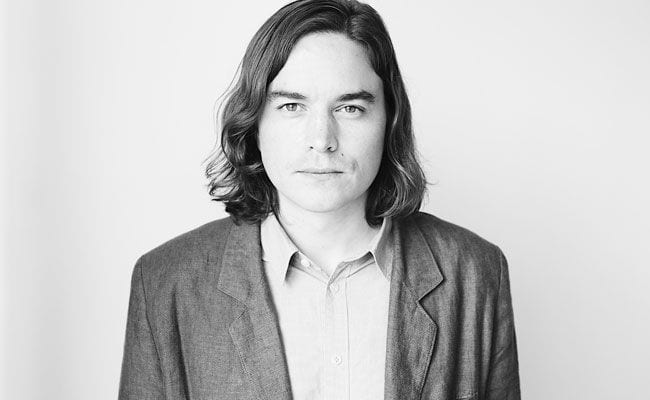
Spencer Krug has been a wanderer. He’s moved from Montreal to Helsinki and now to Vancouver. He’s also moved from musical project to musical project, from Wolf Parade to Sunset Rubdown to Moonface. And, even as the mostly solo project Moonface, Krug has shifted musical focus from marimba (and “shit drums”) to organ to dramatic rock to solo piano. And it was in that solo piano, on last year’s Julia With Blue Jeans On that Krug achieved one of his finest recordings. It was solitary and intimate yet writ large with echoing space, expansive lyrics, and dramatic sound. If Krug never really sits still, musically or geographically, that record found him making the most of his latest stop.
It’s an album that represented his most pure tribute to the keys he’s always played so well, but also a tribute to his time in Helsinki. City Wrecker, his new EP, feels like a companion piece. These were his final recordings in that city before he moved on, and they once again find him solo on piano. This is the first true repetition of musical focus in the Moonface catalog, and yet these five songs feel subtly different that the sweeping nature of Julia With Blue Jeans On.
On that record, the solitary Krug seemed to be reaching out, bellowing to us to feel his lonesome ruminations as if they were our own. “Everyone is Noah, and everyone is the arc,” he sang, and that inclusive feeling permeated the record, mostly because Krug played with the king of passion that wrapped around the listener, that took up space but left room for you in it. City Wrecker still does that in its way, though the effect is slightly different. Opener “The Fog” starts exactly where that album left off, with quiet piano phrasings, and Krug tells the story of a love that seems poised to slip into control (“Don’t tie the blindfold quite so tight this time”) and the song swells with layers of synthesizers in the end, give us the kind of repetitive swirls that Philip Glass made famous, the kind that start expanding only to coil in on themselves.
This coiling ups the lonely quality of these songs, and the title track drives that feeling home. As Krug looks back on his time in Montreal, a place he calls “a sort of boring ruin,” he feels a bit stuck and the soft, deliberate melody and quietly struck chords sound like a man sneaking across the border rather than sprinting to get away. But it’s also a song about not being able to get away from yourself. “It is two-thousand and whatever / I am still a city wrecker,” Krug admits, turning the blame not on Montreal and its boring ruin, not on chilly Helsinki, but himself. Here he seems to imply that not only can he not sit still, but he scorches the earth behind him when he leaves.
That notion of exploring your own role in where you are permeates City Wrecker and only gets bigger on the songs final two epic tracks. “Helsinki Winter 2013” may have a plainspoken title, but it’s the most complex and fascinating moment on the record. “When I look into the mirror, I see all of my old friends,” Krug sings, pinning down a central theme of the record: for all the city’s that get wrecked, each one continues to shape the past, a past that shapes Krug in the present. “You belong where you are found,” he bellows later in the song, before his piano takes over, stretching the song out in beautiful, cascading phrases. There’s a reckoning here, but also an opportunity. Another start.
The second half of the record, with the ten-minute-plus expansion of “Daughter of a Dove” closing things out, shows the compositions growing as some representation of new spaces. Maybe this is Krug exhausting the piano record, maybe the next Moonface release will be totally different. Or maybe it’s Krug finding a new place. “I know the things I do and things I say / are more than just a little away from each other,” he admits, and therein lies the complication of the record. For all its admissions of blame for “wrecking cities”, those confessions don’t quite reach out as much as they did on Julia With Blue Jeans On. The solitude here sometimes, especially early on, keeps us at a distance. But maybe that’s a necessary move on this record, a retreat before the next exposure, before the next space to strip bare. There’s a nervousness here, a hesitancy, and maybe that’s because for all his moving around, all his worry over a past burned, when he’s behind this piano Krug sounds at home, rooted, in a place he’s been found and a place he belongs.


![Call for Papers: All Things Reconsidered [MUSIC] May-August 2024](https://www.popmatters.com/wp-content/uploads/2024/04/all-things-reconsidered-call-music-may-2024-720x380.jpg)



